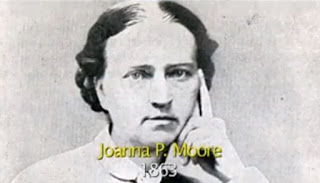 |
| First Baptist Church, Dallas, Texas, on Freedom Sunday |
If possible, don't quit reading, but I understand you'll have a strong desire to stop after you read the next sentence.
I am a political conservative who voted for Donald Trump and think he's doing a pretty good job as President.
I know about half of you reading this are now very angry. I'm asking you to continue reading even if you disagree with me about my politics, especially if you are a professing Christian.
For I'm about to upset the other half reading this post as well.
At my request, the American flag has been removed from the auditorium of Emmanuel Enid, the church where I serve as a teaching pastor.Some members of Emmanuel Enid don't like that the American flag is gone. It has made them - friends of mine - about as upset as those of you who now know I voted for Trump.
So let me take the time to explain the principle behind the American flag's removal from the building where Christians gather for corporate worship at Emmanuel Enid.
Christ's people belong to an eternal Kingdom which has no flag.Some church members have a tough time understanding this principle because they've been raised in America, believing nationalism and Christianity go together like peanut butter and jelly between slices of bread.
In other words, they're comfortable with worship like that at FBC Dallas.
If I were at a political rally, I too would love what took place at FBC Dallas last Sunday during their church services.
I just don't think nationalism is appropriate in a Christian corporate worship service.
As a student of history, I understand that fascists and totalitarian governments always demand nationalism during Christian worship services. Little kings don't like their people bowing to a bigger King.
Some respond: "Wade, aren't you a patriot?" (Yes). "Aren't you a theological, political, and cultural conservative?" (Yes, yes, and yes). "Don't you wish to honor our military and our country?" (Yes). "Aren't we called by God to pray for our country's leaders?" (Yes).
Then why don't you place the American flag in the building where we corporately worship?
Because too many people in America confuse and fuse Christianity and politics.
Nations come and go. Republics rise and fall. Countries create conflict and collapse or conquer. Nationalism, patriotism, and statism are all temporary.
Christ's Kingdom is eternal. National kingdoms are not.
Never confuse the two. Our eternal citizenship is in Christ's Kingdom Our temporary citizenship is in the kingdom (little "k") of the United States (or other countries). Never confuse Christ's Kingdom with an earthly president's or king's kingdom.
By the way, political liberals, as well as political conservatives, get confused over this because they both don't understand the principle that Christ's kingdom transcends every kingdom of the world:
"Political liberals want the government to look like their concept of the church as much as political conservatives want the church to look like their concept of the government."Avoid the temptation to dilute the Kingdom with other kingdoms.
Emmanuel Enid has a Christian school where every morning we teach our children good citizenship to the United States. Students recite the Pledge of Allegiance. They learn about the Constitution of the United States. They pray for our President, regardless of party or affiliation.
But that's a school that teaches nationalism, patriotism, and good citizenship.
It is not a Kingdom church.
So, this July 4th there will be no patriotic service at Emmanuel. There used to be one every year.
But Emmanuel Enid now understands better the principle that in corporate worship the Kingdom always supersedes kingdoms.
There's nothing wrong with patriotic, fire-works worthy, nationalistic, triumphant celebrations using choirs, flags, military salutes, and bands! I enjoy them as a patriotic American and will participate in a nationalistic, patriotic celebration Wednesday night, July 4th.
But I know that my true citizenship is in a Kingdom that is eternal, one that will long outlast America, and I don't wish to downgrade the eternal with the temporal during worship of the King.


















